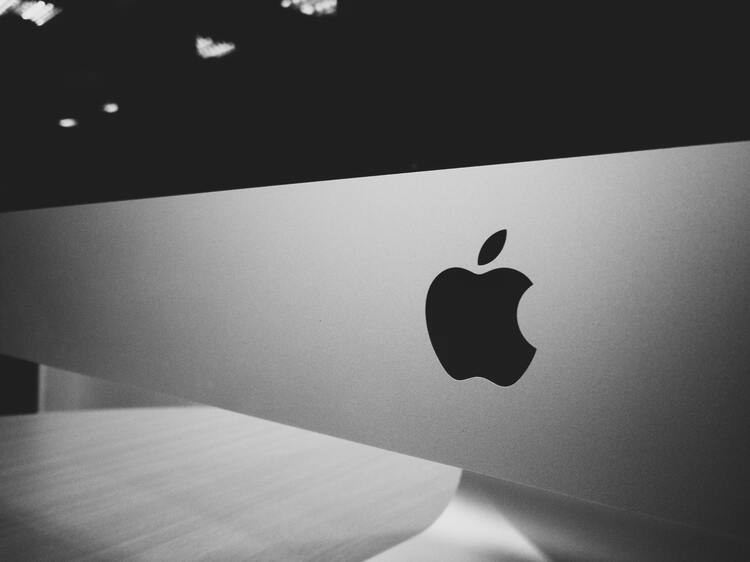Trend Micro tools tossed from Apple's Mac App Store after spewing fans' browser histories

Trend Micro anti-malware tools have vanished from Apple's Mac App Store – after they were spotted harvesting and siphoning off users' browser histories.
Dr Cleaner, Dr Antivirus, and App Uninstall – utilities owned by the Japan-headquartered security house and distributed on the Mac App Store – are no longer available for download. It is not entirely clear yet whether Apple took action itself and stripped the info-collecting software from its online macOS application store, or if Trend Micro pulled the apps itself following complaints. Its website today still links to the downloads even though they are no longer available.
While neither Apple nor Trend has responded to a request for comment on the matter, the removals are almost certainly a response to reports in recent days that the products appeared to covertly collect and upload private user data.
Mac security guru Patrick Wardle noted last week that in addition to the advertised functions of removing adware and malware from Macs, the software also collected people's personal data including their browsing history, then transmitted that data as a password-protected archive to a server on the internet.
"From a security and privacy point of view, one of the main benefits of installing applications from the official Mac App Store is that such applications are sandboxed," Wardle blogged.
"The other benefit is that Apple supposedly vets all submitted applications - but as we've clearly shown here, they (sometimes?) do a miserable job.)"
Fortunately, the newest version of Apple's OS appears to have addressed the first part of that. Wardle noted that those running preview versions of Mojave would have had the product running within new sandbox protections that would have blocked access to private data such as browsing history.
Still, as Wardle explained, the fact that both applications were signed off by Trend Micro and approved for the App Store by Apple should give users reason to be cautious when looking to get new software from even the Cupertino-sanctioned official portal and trusting Apple's own security protections which were in this case circumvented.
Source theregister

Latest Jobs
-
- Infrastructure (Network / Security) Engineer | West London commutable | Permanent
- London
- Apply today
-
Infrastructure (Network / Security) Engineer | West London commutable | Permanent This is an in house opportunity. Looking for someone that has on prem / data center experience MUST be a currently hands on config, Install, upgrade, troubleshooting experience Routing, Switching, Network Security (firewall, IDS etc), Microsoft Active Directory / 365. VMWare Scripting / automation experience wanted. Python, Powershell etc Must be commutable to West London twice a week. Visa sponsorship not available. Apply today for more information Book a call via this link https://calendly.com/d/crqf-t28-7tb
-
- Identity & Access Management Architect
- Edinburgh
- Upto £95000 plus bonus and benefits
-
Location: Edinburgh | Hybrid Working | Permanent Are you an experienced Identity & Access Management professional with a passion for designing and implementing cutting-edge security solutions? We are looking for a Lead Architect, where you’ll play a key role in helping clients enhance their IAM capabilities, protect critical data, and navigate complex security challenges. About the Role As a Lead Architect, you will be responsible for shaping and delivering IAM strategies, designing robust security solutions, and driving long-term digital transformation. You’ll leverage your expertise to provide strategic guidance on areas such as: Identity Governance & Administration (IGA) Privileged Access Management (PAM) Access Management (AM) Entitlement Management Directories & Authentication Solutions You will have the opportunity to work with innovative technologies and frameworks, ensuring that businesses can securely manage access to critical assets while enabling growth. What You’ll Be Doing Providing subject matter expertise in IAM and leading transformation projects for clients Developing IAM roadmaps, operating models, and governance frameworks Driving innovation by integrating IAM capabilities into wider digital transformation strategies Building and maintaining strong relationships with clients and stakeholders Designing and implementing scalable IAM solutions to meet business needs What We’re Looking For Proven experience in IAM strategy, solution architecture, or assurance Strong leadership skills with experience guiding technical teams Ability to work in a client-facing role, delivering clear communication and insights A technology-focused, innovative mindset with strong business acumen Willingness to work from our Edinburgh office 2-3 days per week
-
- Security Architect - Cloud - Consultancy London
- London
- N/A
-
Security Architect with a focus into Cloud (AWS, Azure or Google Cloud Platform) needed. You must have client facing consultancy experience. This mean you must have experience working with clients helping them to meet their security design needs. That could include working with existing internal teams to understand, review and mitigate / uplift existing Cloud Security designs, or perhaps helping clients set out / understand their current needs and deliver their cloud security strategy. (Or anything in between) Technical knowledge is of course essential but working with clients to understand and solve their Cloud Security design challenges is vital. You must obviously have a current history working as a cloud security architect. You will need to be commutable to London. Whilst a hybrid role the expectation is 3 days a week in the office / meeting clients. International relocation or Visa sponsorship isn’t available for this role. Apply on this page and arrange a call here https://calendly.com/d/crpz-m7j-wyx